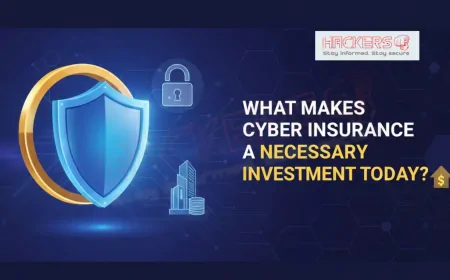Why Small Businesses Need Cybersecurity More Than Big Companies
Picture this: a small coffee shop owner in a quiet town wakes up to find their online ordering system locked down by hackers. They demand a ransom to unlock it, and without backups or experts on hand, the owner faces days of lost sales or even closure. Now contrast that with a big corporation hit by a similar attack. They have teams of cybersecurity pros who jump into action, minimizing damage quickly. This scenario highlights a harsh reality in 2025: small businesses often suffer more from cyber threats than giants. With cyber attacks rising globally, reaching costs of trillions, small operations are prime targets. They lack resources but hold valuable data, making them vulnerable. This blog explores why small businesses need cybersecurity even more than big ones. We will look at risks, comparisons, and simple steps to protect yourself. If you run a small shop or startup, or just want to understand the digital dangers, read on. We will keep things straightforward, explaining terms as we go, so anyone can follow.

Table of Contents
- Understanding Cybersecurity Basics
- The Unique Vulnerabilities of Small Businesses
- Why Big Companies Have an Edge in Cybersecurity
- Common Cyber Threats Targeting Small Businesses
- The High Cost of Ignoring Cybersecurity
- Simple Steps for Small Businesses to Enhance Security
- Comparison of Cybersecurity Needs: Small vs. Big
- Real-World Case Studies
- Future Trends in Cybersecurity for Businesses
- Conclusion
- Frequently Asked Questions
Understanding Cybersecurity Basics
Cybersecurity is the practice of protecting computers, networks, and data from digital attacks. Think of it as locking your doors and windows at home, but for your online world. In simple terms, it involves tools, processes, and habits to keep information safe from hackers who might steal, damage, or disrupt it.
For businesses, this means safeguarding customer details, financial records, and operational systems. Common tools include firewalls, which act like barriers to block unauthorized access, and antivirus software that scans for harmful programs. But it is not just tech: training employees to spot scams, like fake emails asking for passwords, is crucial too.
In 2025, with more work online, cybersecurity is vital for all. Yet, small businesses often overlook it, thinking they are too small to target. This mindset is dangerous, as we will see. Big companies invest heavily, but small ones can start with basics without breaking the bank. Understanding these fundamentals sets the stage for why small operations need protection just as much, if not more.
Attacks come in forms like malware, which is bad software that infects devices, or phishing, where fraudsters trick you into giving info. Knowing these helps appreciate the risks. As we dive deeper, remember: cybersecurity is about prevention, detection, and response, tailored to your size.
The Unique Vulnerabilities of Small Businesses
Small businesses face special challenges that make them more at risk. First, limited budgets mean less spending on security. A 2025 survey shows nearly half of small firms have been attacked, yet many skimp on protection. They use outdated software, easier for hackers to crack.
Without dedicated IT teams, owners handle everything, often lacking expertise. This leads to weak passwords or no backups, inviting trouble. Hackers see small businesses as easy targets with valuable data like customer emails or payment info.
Supply chain risks add danger. Small firms supply big ones, so a breach can spread. A hacker might use a small vendor to access a larger network. Resource constraints mean ignoring security for daily operations.
Underestimating threats is common. Owners think "we are too small," but data is gold. Stealing computing power or using as entry points are motives. These vulnerabilities make small businesses need cybersecurity more: they have less to fall back on if hit.
Recovery is harder too. Without insurance or experts, a breach can close doors. Stories of shops losing everything to ransomware highlight this. Addressing these starts with awareness and simple steps.
Why Big Companies Have an Edge in Cybersecurity
Big companies enjoy advantages that small ones do not. They have big budgets for top tools and teams. Dedicated cybersecurity departments monitor threats 24/7, using advanced systems like AI to detect issues early.
Training is routine: employees learn to avoid scams through regular sessions. Big firms also have compliance requirements, forcing strong security to meet laws like data protection rules.
Partnerships with experts give access to latest intel. If attacked, they recover fast with backups and plans. Reputation drives investment: a breach hurts stock prices, so prevention is priority.
Scale helps: spreading costs over operations makes security affordable. Small businesses lack this, making threats more devastating. Big ones absorb hits better, while small ones risk everything. This edge shows why small firms must prioritize security to level the field.
Common Cyber Threats Targeting Small Businesses
Small businesses face specific threats. Phishing tops the list: fake emails trick staff into clicking bad links or sharing info. Without training, these succeed easily.
Ransomware locks files until paid. Small firms often pay or lose data, lacking backups. Malware infects via downloads, stealing info quietly.
Weak passwords allow brute-force attacks, guessing until entry. No multi-factor authentication worsens this. Supply chain attacks hit via vendors: a hacked supplier exposes you.
Insider threats, like unhappy employees, or external like DDoS flooding sites to crash them. In 2025, AI-powered attacks make these sophisticated, but basics like updates prevent many.
Understanding threats helps prepare. Small businesses attract hackers for easy wins, so vigilance is key.
The High Cost of Ignoring Cybersecurity
Ignoring security is expensive. A breach costs average $25,000 for small firms, but can reach millions with lost business and fines. Downtime hurts sales: a shop offline loses customers.
Reputation damage is lasting: trust erodes if data stolen. Legal costs arise from privacy laws. Recovery takes time, diverting from growth.
Underestimating costs is common: owners unsure of financial impact delay action. But prevention is cheaper: basic tools cost little compared to breaches. Stories of closures after attacks show the stakes. Investing now saves later.
Simple Steps for Small Businesses to Enhance Security
Getting started is easier than you think. First, train staff: free resources teach spotting phishing.
Use strong passwords and managers. Enable multi-factor authentication: extra step like phone code.
Keep software updated: patches fix vulnerabilities. Install antivirus and firewalls.
Backup data regularly: store offsite or cloud. Develop incident plans: know response if attacked.
Consider insurance: covers breach costs. Partner with experts for audits. These steps build strong defense without huge spends.
Comparison of Cybersecurity Needs: Small vs. Big
To highlight differences, here is a table comparing small and big businesses.
| Aspect | Small Businesses | Big Companies |
|---|---|---|
| Budget for Security | Limited, often minimal | Large, dedicated funds |
| IT Resources | Owner-managed, no experts | Full teams and tools |
| Attack Recovery | Difficult, risk of closure | Quick, with backups |
| Awareness Level | Low, underestimate risks | High, regular training |
| Target Appeal | Easy entry for hackers | Harder, but high value |
Real-World Case Studies
Examples bring points home. A small retailer in 2024 lost $50,000 to ransomware, no backups led to weeks offline. They closed temporarily, losing customers.
A big bank faced a breach but contained it fast with teams, minimal loss. Small accounting firm hacked via vendor, exposing client data, facing lawsuits.
These show small businesses suffer disproportionately. Learning from them emphasizes proactive security.
Future Trends in Cybersecurity for Businesses
In 2025 and beyond, trends shape needs. AI helps detect threats but hackers use it too. Small businesses must adopt affordable AI tools.
Remote work increases risks: secure home networks vital. Cloud services grow, needing proper setup to avoid breaches.
Regulations tighten: small firms must comply or face fines. Zero-trust models, verifying everything, become standard.
For small businesses, trends mean starting now to stay ahead. Affordable solutions like cloud-based security make it possible.
Conclusion
To wrap up, small businesses need cybersecurity more than big companies due to vulnerabilities, limited resources, and devastating impacts of breaches. While big firms have edges, small ones can protect with simple steps like training and updates. Ignoring risks costs dearly, but investing pays off in safety and trust. As threats evolve, prioritize security to thrive. If a small business owner, start today: your future depends on it.
Frequently Asked Questions
What is cybersecurity?
It is protecting digital systems and data from attacks.
Why are small businesses targeted?
They are easier with less security.
Do big companies get attacked?
Yes, but recover better.
What is phishing?
Fake messages tricking for info.
How much does a breach cost small firms?
Average $25,000 or more.
Can small businesses afford security?
Yes, with free tools and basics.
What is ransomware?
Software locking files for ransom.
Why underestimate risks?
Lack awareness and resources.
What is a firewall?
Barrier blocking unauthorized access.
Do I need experts?
Not always, start with training.
What is multi-factor authentication?
Extra verification step.
Are updates important?
Yes, they fix weaknesses.
What is malware?
Harmful software infecting devices.
Can insurance help?
Yes, covers breach costs.
Why supply chain risks?
Hacked vendors expose you.
What is zero-trust?
Verify everything always.
Do laws require security?
Yes, for data protection.
How to train staff?
Use free online resources.
What if no IT team?
Outsource or use simple tools.
Is AI changing security?
Yes, for detection and threats.
What's Your Reaction?










































































